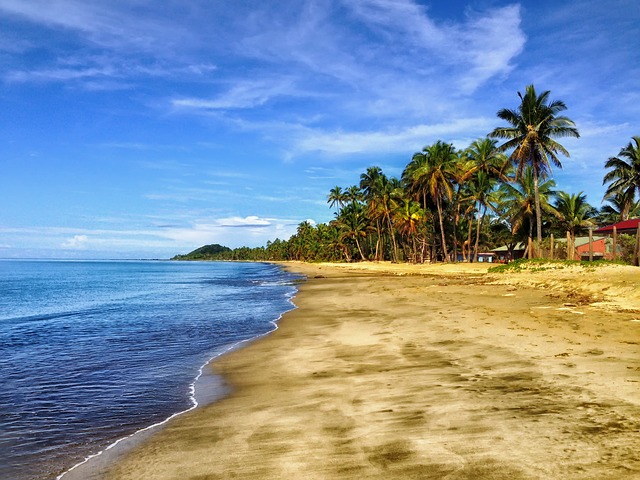Fiji and Israel: an unusual partnership

Until a few weeks ago, Israeli Prime Minister Benjamin Netanyahu was scheduled to visit Fiji as an extension of his Australian visit. This would have reciprocated a previous visit to Jerusalem by Fiji’s Prime Minister Josaia Voreqe Bainimarama. While both visits had political motivations, the two countries also share a surprising number of common interests, from regional peacekeeping to water technology.
Bainimarama’s Jerusalem visit served various purposes. It formed part of a tour of Middle East capitals to discuss what Bainimarama called ‘Fiji’s contribution to United Nations’ peacekeeping in the region’ and the ‘safety of Fijian men and women in uniform, as they carry out their duties’.
On a per capita basis, Fiji has been the biggest contributor of soldiers to UN peacekeeping missions. According to Fiji’s Ministry of Foreign Affairs, the largest contingent of these peacekeepers serves with the Multinational Force & Observers (‘MFO’) in the Sinai which sits on Israel’s south-west border. The MFO was formed after the 1979 Treaty of Peace between Egypt and Israel with a mission to supervise its implementation and prevent violations.
Fiji also maintains a presence on Israel’s Syrian border with the United Nations Disengagement Observer Force (UNDOF). This gained worldwide attention in 2014 after 45 peacekeepers were abducted and held by al-Qaida linked militants for two weeks. Following this, the peacekeepers moved from the Bravo (Syrian) side to the Alpha (Israeli) side of the border, where they could surreally be found working alongside curious tourists. In addition, 146 Fijian peacekeepers were moved to the UN peacekeeping mission in Lebanon (UNIFIL), where Fiji had previously sent peacekeepers in 1978. With improved security conditions in late 2016, 150 (out of 819) UNDOF troops returned to the Syrian side. However, a full return ‘seems unlikely in the foreseeable future’.
Aside from Fiji’s peacekeeping forces in the region, Bainimarama also noted another reason for his visit, namely, Israeli support ‘on medical [technology], renewable energy, including agriculture, and especially our effort to draw global attention to the need for more decisive action on climate change’.
Whilst many nations seek to capitalise on Israel’s high tech prowess, Israeli leadership in water technology is particularly significant to Fiji. The two countries are discussing a proposed ‘Memorandum on Agriculture’ and Israel is offering Fiji ‘tailored approaches to crop production and farming practices that are better suited to the changing weather conditions caused by climate change’. This follows previous assistance from Israel, after Fiji faced its strongest tropical cyclone in recorded history in early 2016. Within a month of Cyclone Winston, Israel coordinated with its Canberra Embassy and IsraAID to send a team of experts which included water, shelter, livelihood and psychosocial specialists.
Yet, as a nation facing a serious threat from climate change, Fiji’s agenda also extends to advocating for global action at the international stage. As such, Bainimarama noted that ‘we need the support of Israel… as we take the fight to Morocco later on in the month to COP22’.
Interestingly, just as Fiji is seeking Israel’s cooperation on the international stage, Israel is also seeking Fiji’s assistance in international bodies. Israel often finds itself isolated in the face of a powerful Arab-led bloc, and it is seeking to garner support from developing nations. Here, the UN voting system provides tiny island nations like Fiji with disproportionate voting power. As Netanyahu said late last year: ‘Why am I going to Fiji? Because fifteen countries, fifteen islands that each have a vote in the UN are coming.’
At one level, Fiji’s international peacekeeping missions and Israel’s foreign aid are performed out of goodwill for their inherent benefits. However, Israel’s aid is also tied to its political interests as was demonstrated sharply when Israel recently instructed the Foreign Ministry to cancel all aid programs to Senegal after the African nation co-sponsored a resolution condemning Israeli settlements. Similarly, critics point to other motives behind Fiji’s peacekeeping efforts including strengthening and legitimising its military and political elite as well as its financial benefits.
It should also be noted that Fiji’s regional presence carries another significant implication. Following Fiji’s military coup in 2006, Western nations imposed sanctions. Since then, Fiji has sought new alliances elsewhere, most notably with Russia and China. A secretive military shipment donated by Russia to Fiji has been interpreted by some as an attempt by Moscow to gain regional leverage. This then, may give rise to a potential conflict of interest between the ostensibly neutral role of UN peacekeepers and Russia’s interests in Syria.
Netanyahu’s visit to Fiji was ultimately cancelled for ‘logistical reasons’. Tensions also arose recently when Israel took issue with the Fijian chair of the General Assembly wearing a Palestinian flag at a UN event. But, despite Netanyahu’s cancellation, Israel has stated its commitment to ‘tirelessly working to strengthen and deepen the strong bonds’ with Fiji.

